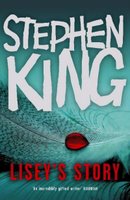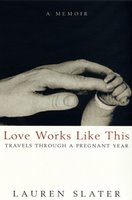
Marisha Pessl’s “Special topics in calamity physics” has been hailed as one of this year’s most promising debuts and is one of the New York Times five fiction books of 2006. Due to the critical acclaim I was expecting to be swept of my feet by this novel, a murder mystery set in a private school, whose narrator is eighteen-year old Blue Van Meer.
Unfortunately, Pessl’s book turns out to be the literary poster child for too-smart-for-its-own-goodness.
We catch up with Blue in her first year at Harvard (and what is it with the Ivy league obsession in the latest years of American pop culture?) where she was admitted without doing much studying visible to the naked eye and where she sees fit to start reminiscing about the events that took place in her high school. The girl’s father is a college professor with a penchant towards radical politics and social theories and who also takes upon himself the role of Oracle in Blue’s life – her mother died in a car accident when she was five – a sort of sociological Oscar Wilde who has little turns of phrase for just about any situation under the sun, “Dad said” being one of the most repeated expressions in the book. Since father and daughter relocate about three to four times every school year so Gareth Van Meer can illuminate the students of the most obscure colleges of middle America, it is a welcome surprise for Blue to discover that she will spent the whole of her senior year in Stockton, North Carolina. By now it’s page fifty (of a total 513), and while I’m already annoyed I can’t say I’m dispirited – Pessl’s style seems original alright, just like the reviewers promised. So, why the attitude, I hear you clamor? Well, Pessl’s book is also a prime example for too-much-of-a-good-thing. She sees it fit to illustrate almost every other paragraph with a literary reference real or made-up, with publisher and year between comas in bibliographic style: some are hilarious like “Christ it’s been done before: celluloid jesuses from 1912-1988, Why Hollywood should cease committing the son of God to screen”, but it’s just gets old real fast, and Pessl’s doesn’t relent until the end; the other thing is the similes, she’s good with them but once again doesn’t know when to stop, and it gets a little nauseating – people look like animals (with bibliographical references), buildings look like people or like animals, everything looks like something else and it gets even more confusing because everything also reminds the narrator of something else, leading the reader along some winding path to nowhere in the middle of the action. Throughout the first third of the book there are also blanks in some of the sentences - which reminded me of Laura Palmer’s missing diary pages - that meant apparently… nothing. It’s just like every little thing, witty, funny remarkable or poignant Marisha Pessl thought during her 29 years on this earth had to be included in the book.
But I swear I never meant to hate this book – only after page 113 it got really, really hard. Blue hooks up with a clique of five rich, handsome, personality deprived kids (which is hard to believe for a girl of such erudition and who worships a father who stands for the opposite of privilege) Charles, Milton, Nigel, Jade and Leulah through a film teacher, Hannah Schneider, who is the object of my favorite passage in the whole book: “Most extraordinary was the air of Chateau Marmont bungalow about her, a sense of RKO, which I’d never before witnessed in person, only while Dad and I watched Jezebel into the early hours of the morning”. As I say I never meant to hate “Special topics”, even though it kept reminding me of some annoying episode of “Gilmore girls”, then, in page 113, Pessl whips out the “transformation”. You know what I mean: that scene replayed ad nauseam in teen (and not so teen) movies in which the average character gets the beauty treatment and comes out a knockout (you know, musical sequence, salon, shops, the works). In Pessl’s world, only the attractive can be confident and intelligent or at least blasé (which I suspect might mean the same to her), and Blue of course is no fugly, I believe the expression goes, only in dire need of highlights, contacts and some lace lingerie.
Fast-forward – if you read the back-cover you will already know that Hannah Schneider turns up dead, hanged, but don’t hold your breath because that will only happen on page 336 – until then you will probably share my hopeful feeling at various moments that the book is really going to “start”, just to be sadly disappointed. None of the characters gain much texture – until the very end I kept confusing Milton and Nigel and Jade and Leulah (guess that’s what the “visual aids”, the author’s illustrations, are there for). Only Hannah and Gareth seem to evolve and Blue remained to me a thin character – most of the time she seemed a silent witness – you knew she had been there because she is the narrator, but where the hell was she? And if we are inside her head, throughout the story, why does it feel so empty?
Even though “Special topics” appears in Amazon.com category for “young women”, I’m not sure I would recommend it to a young adult: the underlying message in the book towards sex seems to be that it’s something sleazy best conducted in motels, or in the handicapped bathroom stalls of road-side bars. Of the adults that serve as guides to the teens not one is in a serious relationship, and the one’s that are, are portrayed as lame and unexciting. Although Blue’s dad is forever besieged by impassioned women, not one of which has apparently, ever stayed the night in any of the Van Meer residences, leaving the reader to guess that the amorous encounters took place elsewhere in the women’s homes or motels. Gareth Van Meer is forever running away from some woman who didn’t get the I’m-not-looking-for-a-commited-relationship memo, and the women always make fools of themselves trying at all cost to get him back (curiously Blue doesn’t see anything wrong with her father’s behavior, at least not for much of the book). Hannah Schneider is spotted by the youngsters in apparently random one-night stands that end up in nearby motels. Jade and Leulah engage in intercourse with forty something truckers in the bathrooms of local dives. Blue rejects her one suitor in the book because he is too much of a nice guy (in the end he becomes more attractive in her eyes, mostly because he has shaved off his head, thereby giving him a more rugged look).
Maybe I’m being too literal? Maybe this whole portrait is actually supposed to criticize modern society’s mixed messages about sex? When I read passages such as the following, regarding Blue’s discovery of Hannah’s sexual proclivities, after she already knew about Jade and Leulah’s, I’m not so sure:
“Of course when I considered Jade, Lu, and the handicapped stall, I also felt queasy; but with Hannah it was worse. As Dad said, the difference between a dynamic and a wasted uprising depends upon the point at which it occurs within a country’s historic timeline (see Van Merr, “The Fantasy of Industrialization”, Federal Forum, Vol. 23, Issue 9). Jade and Lu were still developing nations. And thus, while it wasn’t fantastic, it also wasn’t terrible for them to have a backward infrastructure and poor human development index.” In Pessl’s world sexual promiscuity is only sad if you’re old. Blue herself never has sex, but you get the sense that it’s less because of ethical qualms than from the fear it would, somehow, upset the balance of her relationship with Dad. Gareth never brings his girls to stay over and Blue believes (rightly or not) that he will see any boyfriend of hers as an opponent. Yes, it’s a really healthy father-daughter relationship.
As to the end, it leaves off a series of untied laces which to me felt more lazy than deliberate. The author, kindly provides a pop-quiz to her own work in the end (yet another less than charming quirk), and I hear you can also look for more clues to the mystery in her website – I’ll pass.
As I said, I felt Gareth Van Meer, obnoxious though he is, was a well sketched character, and it didn’t seem feasible that he would do what he’s supposed to do in the end. He thought the world of himself and hated superficiality just as much as he loved his daughter. In fact, I’m pretty sure Professor Van Meer would hate Marisha Pessl’s book.
A quick aside – “Nunca dormindo” is not an even remotely correct translation of Nightwatchmen to Portuguese, contrary to what can be read in page 512, which makes me doubt a whole lot else.









